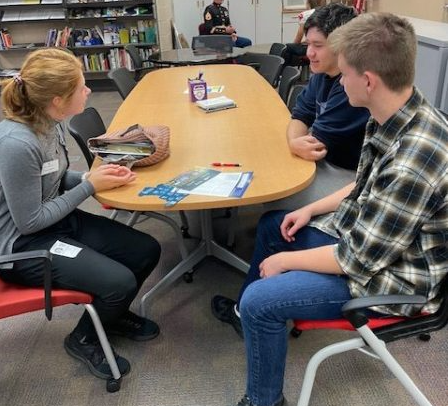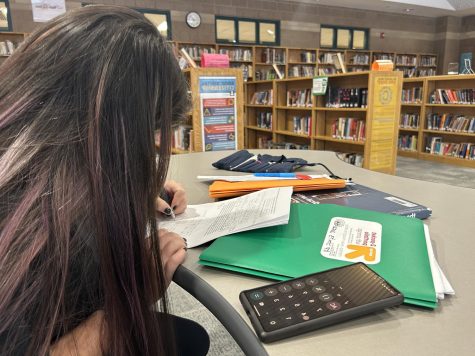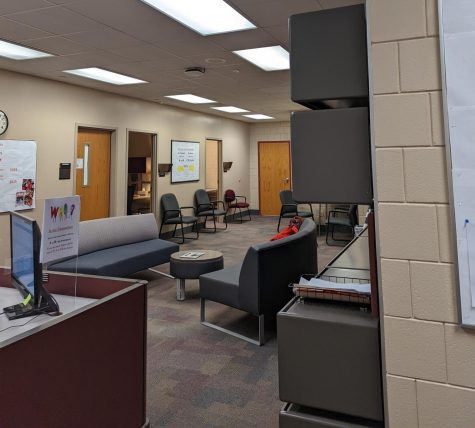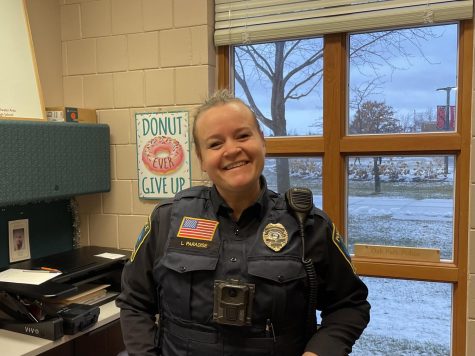Staff Ed: FACS classes needed in middle schools
Skills like baking, cooking and other aspects of the kitchen are among some of the most important parts of a FACS class. In recent years, the amount of classes offered to students has become smaller.
February 21, 2020
Over the past few decades, the number of middle school students who have taken a FACS, (family and consumer science) class has dwindled. In many schools across the nation, it is no longer a required course, or even offered as an elective.
FACS classes deal with life skills such as nutrition, food preparation, parenting, early childhood education, family economics and resource management, human development and more. It is a class capable of bringing young teens into their maturing years as they learn to be more self-sufficient and is critical for the growth of students. It needs to be reintegrated into schools as it is a hands-on course that will help students in their future.
“only 15 percent of adults say they learned to cook in classes or in school. Therefore, even though many students’ parents may cook and teach them about finances, these skills are currently not taught where they should be: in the classroom”
— Julia Wolfson
In 2006, only around 25 percent of students had completed a FACS class, a minimum nine-week course. The sharp decline over the years has partly been due to not having enough time in a school day to fit the class. However, this issue could be solved by merging elements of classes like reading and math into the curriculum. In fact, there are already components of other classes like math for finance and reading for recipes.
It is also contended skills learned in this class are more lasting and productive in the long run. Learning how to cook simple meals and wash laundry effectively, as well as balancing a checkbook are skills everyone should have. Skills like cooking could also be a method to help curb the obesity rate that has climbed in recent years. When students have the ability to prepare and cook simple, fresh meals, they do not have to turn to fast food as a substitute.
“Cooking one’s own meals can be a key strategy for avoiding obesity, because it gives people control over the ingredients in what they eat,” said author of a School of Public Health study Julia Wolfson. “However, cooking frequently and healthfully can be difficult, and participants in the study recognized that more needs to be done to teach cooking skills and make it an everyday activity, not something reserved for special occasions.”
Some argue parents should teach these skills like cooking, cleaning and finances at home. However, this mode of thinking is irrelevant as not every child has a household where these skills are taught. Wolfson also explained only 15 percent of adults say they learned to cook in classes or in school. Therefore, even though many students’ parents may cook and teach them about finances, these skills are currently not taught where they should be: in the classroom.
If students can learn these valuable skills in the classroom daily, they do not have to rely on their parents instructing them. FACS classes need to be offered as an elective available to students, if not required. The students who need or want it must have the option to be able to take a practical course.
Students must know basic skills so they can handle their personal life as well as help maintain a household. Going into high school with a secure set of knowledge about home life and finances becomes invaluable to young people. Without them, they can enter the real world feeling lost or powerless because they can not do something as straightforward as loading a dishwasher or using the stove.
Therefore, once schools reintroduce the idea of FACS classes, whether as an elective or required for all students, self-independence and a feeling of accomplishment can be established in a larger percentage of students, not only the ones with parents who teach them.



















